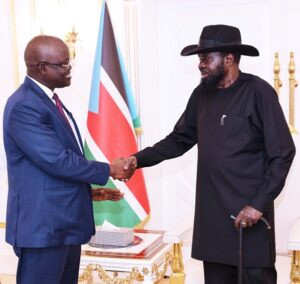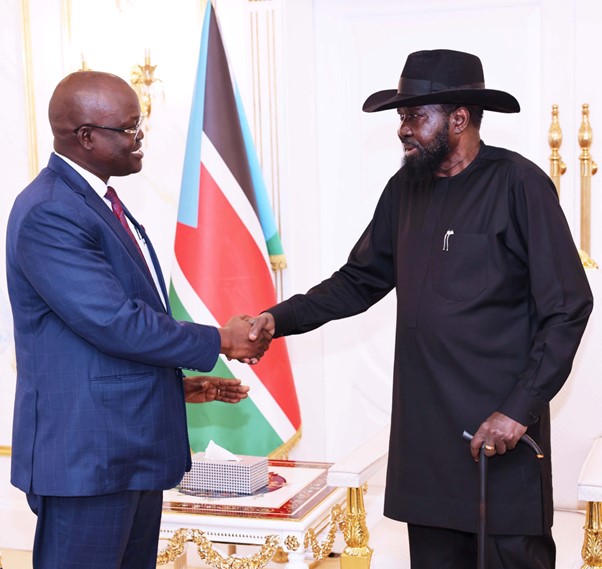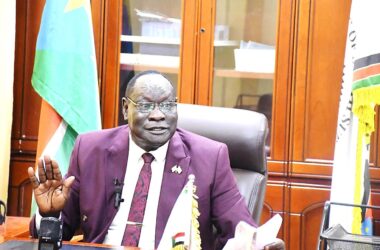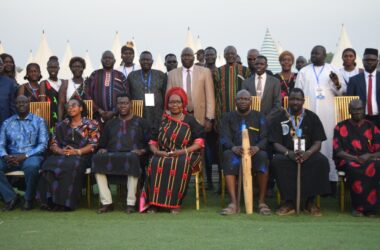
By Lodu William Odiya
The South Sudan President Salva Kiir Mayardit has vowed to support flood affected populations in South Sudan.
According to a statement issued by the presidential press unit, the remark comes following a briefing from the Minister of Humanitarian Affairs and Disaster Management, Albino Atak Akol, regarding the overall humanitarian situation in the country.
In the statement, Minister Albino warned of an impending humanitarian catastrophe due to the high influx of refugees and returnees fleeing conflict in Sudan.
The statement emphasized that Albino noted the government is preparing mechanisms to mitigate the impacts of climate change, which are expected to affect millions of people across the country, particularly in Lakes State, Western Equatoria, Northern Bahr El Ghazal, Unity State, and other regions.
It also noted that the peak of this crisis is expected between September and October, when severe flooding will displace many people from their homes.
The statement further underscored the Minister briefed the President on the Ministry’s preparedness and planned interventions, including the construction of additional dykes and water channels to reduce water flow in the affected areas.
In response, the statement stated President Kiir reaffirmed his administration’s commitment to supporting the affected populations.
It further underlined the president directed relevant institutions to develop critical policies to address these challenges and appealed to donors to assist the government with early response and mitigation efforts.
June, July, August and September are the main rainy season for South Sudan, constituting 70 per cent of the annual rainfall received in the country.
Seasonal flooding, which typically occurs between July and October, is a fact of life for many communities, and “normal” flooding is dealt with through coping mechanisms.
On Tuesday 19, 2025, the Japanese government contributed 2.5 million united states dollars to help communities adapt to the current climate change.
Implemented by UNCHR, the 2.5 million United States dollars will be used on strengthening early warning system and disaster preparedness.
It will also be used for improving the infrastructure including the climate resilient shelters ,water and sanitation facilities and promoting sustainable livelihoods through solar irrigation and agroforestry.



